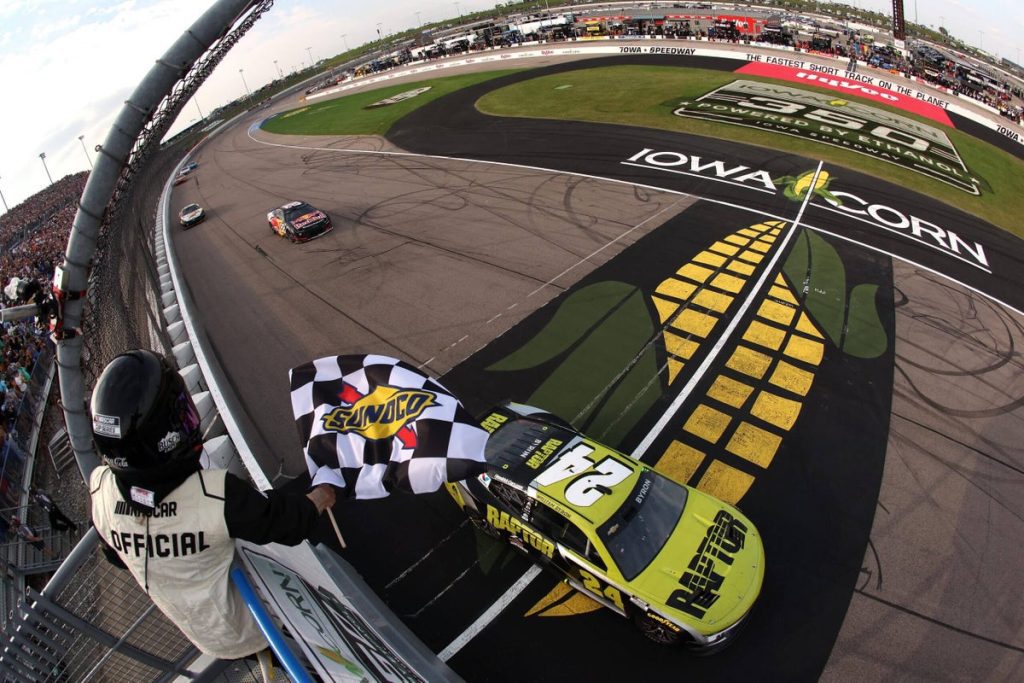NASCAR fans are not imagining things: fuel has been a hot topic this summer, possibly more than fuel supplier Sunoco would like. Fuel mileage—where teams instruct drivers to balance conserving gas with maintaining speed—has significantly influenced the outcomes of four out of the last five traditional oval races: Michigan, Pocono, Indianapolis, and Iowa. Since June, only Dover has escaped the fuel-conservation narrative.
These races were interspersed with three road courses (Mexico City, Chicago, and Sonoma) and an Atlanta superspeedway race. However, when it comes to regular ovals, fuel strategy has dominated discussions. Denny Hamlin showcased his fuel-saving skills to secure victory at Michigan, while others, like Ty Gibbs, were unable to compete effectively. Chase Briscoe also managed to conserve enough fuel for his win at Pocono, and Bubba Wallace conserved fuel for two overtimes during the Brickyard 400.
On Sunday, William Byron benefited from a caution-heavy second half at Iowa—41% of which ran under caution—to stretch his fuel for 144 laps and claim victory. What set Iowa apart was the unusual number of cautions—11 in the last 180 laps, rivaling the total number of cautions in every other race this season apart from one. Byron had never intended to conserve fuel so strategically, but luck was on his side that day.
Fans, however, might not expect this kind of strategy on a short track like Iowa. While it’s common at larger tracks like Michigan, Pocono, and Indy, Iowa presented a mix of challenges typical of a Next Gen short track, including dirty air and insufficient tire wear due to a recent repave. Fuel-saving strategies layered over this unique context may not be what fans desire from NASCAR races.
Nevertheless, the focus on fuel strategy may shift soon. The upcoming oval, Richmond, will center on tire wear instead, while fuel-saving strategies will again be a factor in upcoming races like Daytona, mainly to set up final pit stops before a sprint to the checkered flag. Fans generally appreciate strategy but prefer it to not overshadow the physical, door-to-door racing aspect that defines NASCAR.
Byron has shown a complex performance this season. Despite winning the Daytona 500 for the second consecutive year and leading the Cup Series points for most of the season, a lack of consistency left fans unsure of his championship potential. Until Sunday, he hadn’t finished in the top five for over two months despite having competitive speed during numerous races. Now, Byron is back in contention for the regular-season championship, holding a narrow lead over his teammates.
In terms of RFK Racing, their drivers have ranked in the top seven for points scored over the last nine races, yet none have managed to secure a victory, making their playoff chances precarious. While Buescher holds the final playoff spot currently, the situation remains dire with three races left. Their performance recently suggests the potential for both success and disappointment as they strive for a playoff berth.



